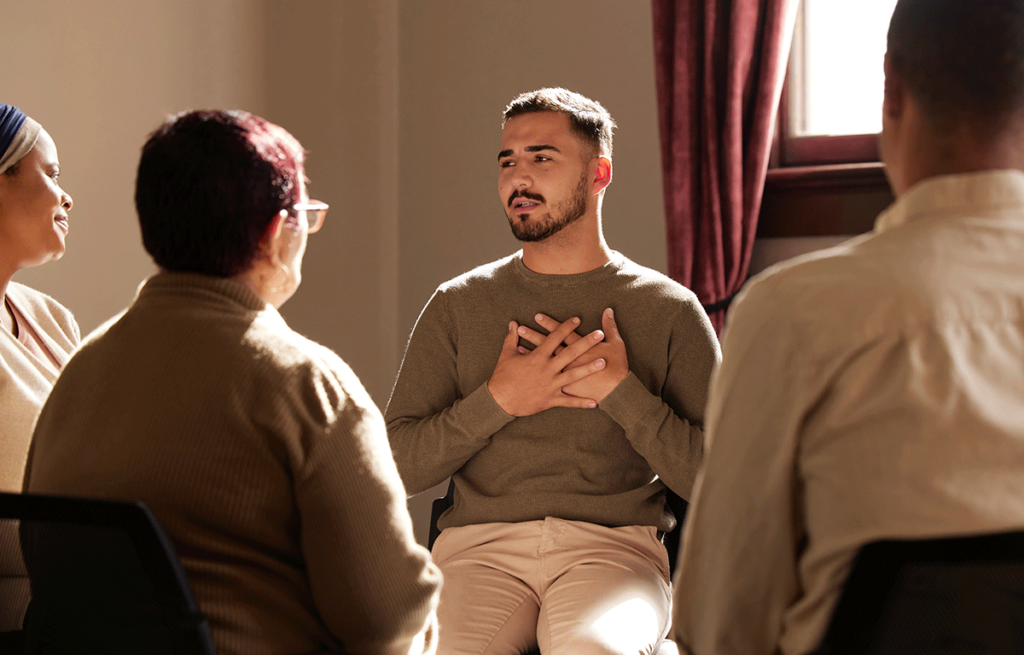When it comes to substance use disorders, there are often co-occurring mental health conditions that manifest as well. The most common co-occurring disorders tend to be anxiety and depression. Many people who use substances do so to cope with their feelings of anxiety or depression. The dual diagnosis of substance use disorders and co-occurring mental health conditions are very often intertwined and require specialized dual diagnosis treatment.
According to the 2021 National Survey on Drug Use and Health, 13.5 percent of young adults aged 18 to 25 had both a substance use disorder and any mental illness in the past year1. At The Arbor Behavioral Healthcare, we treat the whole person. This includes a specialized co-occurring disorder treatment program, or dual diagnosis, for those caught in the cycle of addiction while struggling with mental health issues.
Call The Arbor today at 844.413.2690 to learn how we can help you with co-occurring disorders and treatment.
Co-Occurring Disorder Treatment at The Arbor
We offer many different dual diagnosis programs, such as the following:
- Bipolar disorder and addiction
- Depression and addiction
- Anxiety and addiction
- Trauma-related disorders and addiction
- Personality disorders and addiction
- Schizophrenia spectrum disorders and addiction
These disorders are very real and need treatment just as much as the substance use disorder. With our programs, we help you understand where your dysfunctional behaviors originate, what’s driving the substance use disorder, how the mental health condition can complicate treatment, and what is the best way forward. We develop a customized treatment plan that gives you healthy coping skills you can use in a crisis instead of reaching for alcohol or drugs.
Healthy Coping Skills
In many cases, drug and alcohol use began as a coping mechanism to deal with a mental health condition like depression or anxiety. However, that path ultimately leads to addiction and dependency, thereby making everything worse. We understand that stressful situations can be overwhelming. They often induce anxiety and depression, which can serve as triggers for drug or alcohol use. Although these unhealthy coping skills may seem like a good idea at the time, as they alleviate the depression or anxiety, they are just a Band-Aid to the problem. There are two main types of healthy coping skills: problem-based and emotion-based coping skills.
Problem-Based Coping Skills
These skills are used when you are in a tough spot and need to change the situation. By challenging and minimizing the stressful situation, you can decrease the stress you are feeling. Here are some examples of problem-based coping skills:
- Creating healthy boundaries
- Physically removing yourself from the situation
- Managing your time
- Problem-solving in the moment
By analyzing the stressful situation and applying problem-based coping skills, you can see the steps to minimize stress and simplify things.
Emotion-Based Coping Skills
These skills are used when you need to soothe your feelings during a challenging situation. This happens when you cannot change the situation, so your focus turns to distraction to eliminate the stress. Here are some examples of emotion-based coping skills:
- Meditation
- Reading a good book
- Exercising
- Art therapy
By applying emotion-based coping skills, you can redirect your thoughts and disengage from a stressful situation by engaging in actions that promote calm and balance or require total concentration and focus.
The Role of Co-Occurring Disorder Treatment in Behavioral Healthcare
Co-occurring disorder treatment plays a critical role in behavioral healthcare by addressing the interconnected nature of mental health and substance use disorders. Effective treatment requires an integrated approach that simultaneously manages both issues, ensuring that clients receive comprehensive care tailored to their unique needs.
Residential treatment programs provide a structured, intensive environment where individuals can focus on recovery without the distractions of daily life. These programs offer 24-hour support, various therapeutic interventions, and a community of peers facing similar challenges, thus fostering a sense of belonging and support.
Alternatively, outpatient treatment programs offer greater flexibility, allowing clients to continue their daily responsibilities while attending therapy sessions. This approach benefits those with robust support systems and less acute symptoms, providing them with strategies to manage triggers in real-world situations.
Both residential and outpatient treatments are essential, as they cater to individuals at different stages of their recovery journey, helping them build the skills and resilience needed to maintain long-term sobriety and mental wellness.
Contact The Arbor Today for Co-Occurring Disorder Treatment
Arbor Behavioral Healthcare is here for you. We offer residential and outpatient treatment programs for co-occurring disorders. We can help you learn the strategies and coping skills you need to manage your stress level when confronted with triggers.
Alcohol and drugs aren’t the answer to coping with anxiety, depression, or any mental health condition. They only worsen an already complicated mental health situation. Call us today at 844.413.2690 or contact The Arbor online. We are standing by to help you or a loved one find the path toward healing and recovery.

